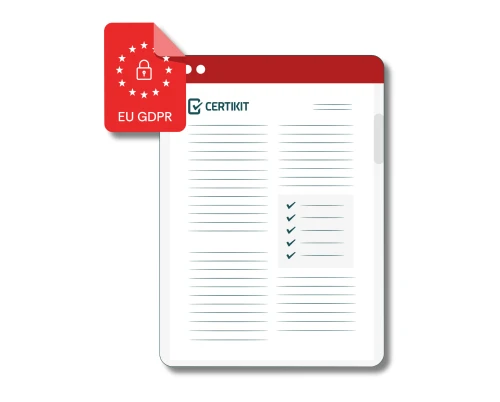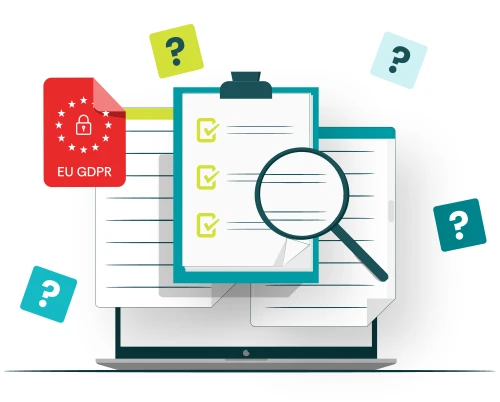Our EU GDPR Toolkit is designed to help organisations implement and align with the General Data Protection Regulation, simplifying data protection and privacy management.
With pre-written templates, step-by-step guidance, and practical tools, the toolkit streamlines compliance, reduces risk, and accelerates implementation. It includes unlimited email support from our experts and a perpetual licence.
Whether you're building on existing data protection measures or starting from scratch, our toolkit provides everything you need to achieve compliance and protect personal data with confidence.





